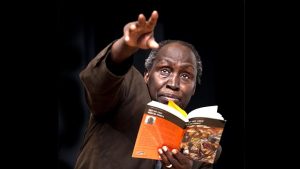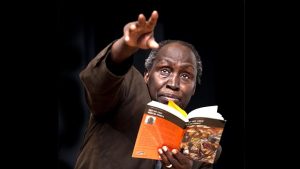
A fable on how humans learnt to walk upright is the most translated short story in African history, according to the group that published it. The piece was written by award-winning veteran Kenyan author, Ngũgĩ wa Thiong’o, and published by the Pan-African collective Jalada Africa. Titled “The Upright Revolution: Or Why Humans Walk Upright,” it has so far been translated into 54 languages.
“We’ve asked around from people who have studied and practiced literary translations for a while and there is no mention of a work of short fiction with as much translations,” said Moses Kilolo the managing editor of the collective.
Kilolo says the piece also holds the record for the most translated, stand-alone short piece of fiction in history. That fact is however hard to prove, given that most translation databases focus on books rather than short stories. The UNESCO Index Translationum, which was created in 1932 to record translated works, has biographical information on books and not stories.
“Whether or not the Ngũgĩ story is the most translated story ever may be impossible to determine,” says the PEN America Translation Committee. Numerous sources consider the Bible as the most translated book of all time. The top translated stories, though not short stories, are The Little Prince and Pinocchio. Things Fall Apart, the novel by the late Nigerian author Chinua Achebe, is widely believed to be the most translated African work.
Ngũgĩ, as he’s usually known, originally wrote the story in his mother tongue, Gikuyu, and then translated the piece into English himself. The fable narrates the story of how “humans used to walk on legs and arms, just like all the other four limbed creatures” and how the rest of the limbs got jealous with their “seamless coordination” and started conspiring against them. The story follows the unfolding of that duel, until all the body parts enter into a symbiotic relationship to work together, setting off what he calls an “upright revolution.”
Ngũgĩ, 78, decided not write in English since the late 1970s, producing award-winning novels and plays in his first language Gikuyu. His vocal opinions on reviving African languages and reading was what attracted Jalada to ask him to write for their translation issue, which featured the story.
Kilolo says they hope to encourage more people in Africa to write in their languages and to translate more. But if there are lessons in the story itself, it was not the basis of selection.
“We wanted a story that could be read for its own beauty, and that could be told in other languages, in different cultures, and still retain its magic,” Kilolo said.

